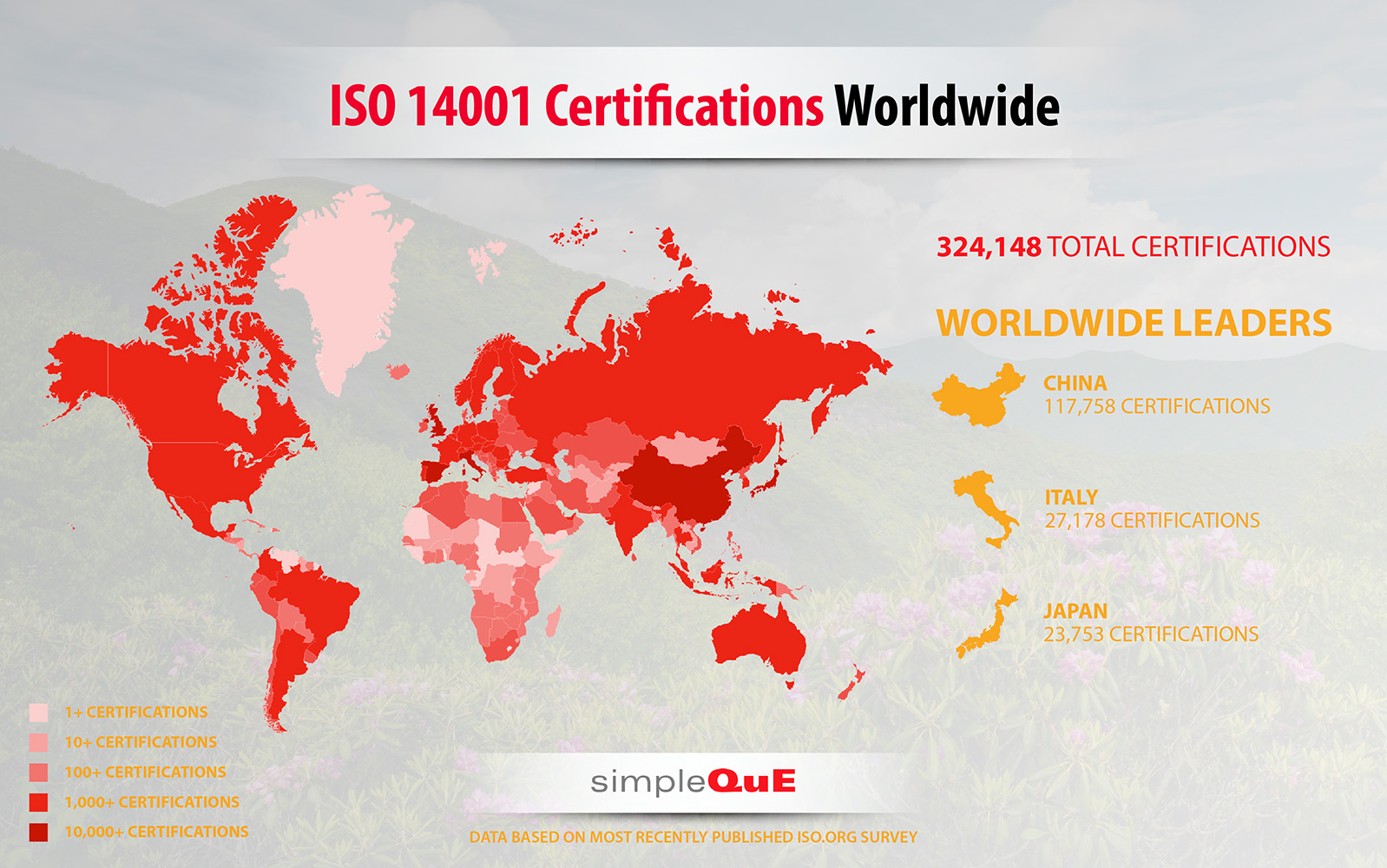DOCUMENTI: ISO14001
A- Environmental Certification is EcoEfficiency
The interest in the certification of the environmental management system (in the dual international and European version: ISO14001 and EMAS standards) is growing at the level of supranational markets. At 30 January 2007, 129,031 certifications were issued in accordance with the ISO 14001 standard, of which over 30% in EU countries (11,000 in Spain, 5,800 in Germany, 9,800 in Italy). Also at 30 January 2007, there were 5,389 in Europe the sites participating in the EEC EMAS system, of which 761 in Italy, 843 in Spain, 1979 in Germany. At the end of 2006 in Japan the ISO 14001 certifications amounted to 21.779; in China from the 2,000 certifications present in 2002, in 2007 they had reached the threshold of 20,000 ISO14001 certifications.
In the latest survey of 2016, 324,148 ISO 14001 certifications were issued worldwide, of which 117,758 in China and 23,753 in Japan. In Italy it has gone from 9,800 ISO 14001 certifications in 2007 to 27,178 in 2016.

Japan's Nikkei Newspaper reports that most of the certifications are for companies active in the export industry, including machinery manufacturers. Most waste management plants, both at European level and especially in Italy, are ISO 14001 and / or EMAS certified. The most aggressive small and medium-sized companies, using the simplifications that are being introduced in their favor, are no different. It is foreseeable that it will not be "easy life" for those companies that have decided to give a different answer to the environmental challenge: that is to do little or nothing with a purely passive vision, with answers case by case when the problem arises. Being content with taking non-pro-active positions on the environmental front can be a short-term, if not even harmful, short-sighted vision for business development, especially when competition becomes more stringent on the global market.
|